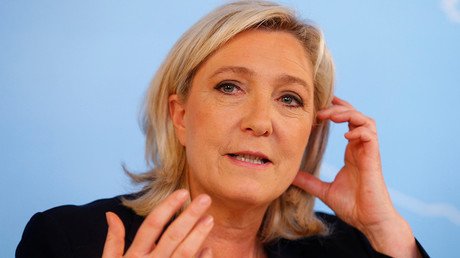Brexit, Trump & now Fillon: ‘Pragmatist’ causes surprise with French center-right primary win
The victory of Francois Fillon, the French presidential hopeful who secured a convincing win on Sunday in the first round of the center-right primary despite trailing in polls, took many by surprise. But some say his success is simply a French version of the ‘Trump effect’.
Fillon, who served as prime minister in Nicolas Sarkozy’s government from 2007 till 2012, not only beat his former boss but also came a spectacular first ahead of Alain Juppe, the 71-year-old ex-prime minister and mayor of Bordeaux.
Next Sunday, Fillon will compete with Juppe in the race to select a nominee for the Republicans party. During the first primary, he stunned his opponents by scoring more that 44 percent of the vote, well ahead of Juppe’s 28 percent and Sarkozy’s 20 percent.
The center-right primary has provoked enormous interest as the frontrunner is likely to face Marine Le Pen, leader of the anti-immigrant, far-right National Front party, and also France’s massively unpopular Socialist president, Francois Hollande, in the presidential run-off scheduled for May 2017.
While Juppe is known to the French and the rest of the world as a widely-disliked prime minister in Jacques Chirac’s government from 1995 to 1997, 62-year-old Fillon is seen by many as something of a dark horse.
“I’m tagged with an [economically] liberal label in the same way one would paint crosses on the doors of lepers in the Middle Ages. But I’m just a pragmatist,” he said during his last rally before Sunday’s primary.
Economic liberalism, traditional values and rapprochement with Russia
Fillon is sometimes referred to as a Thatcherite, given his controversial proposals to curb budget spending, cut half a million public sector jobs in five years, and hack away at France’s rigid labor laws. In the past Fillon admitted to admiring British Tory Prime Minister Margaret Thatcher, according to the Guardian.
Contrary to the current French establishment, he advocates lifting EU sanctions imposed on Russia for what Brussels insists was “undermining Ukrainian sovereignty” after the 2014 Euromaidan coup accepted by the West.
Last June, Fillon told the BFM TV channel “the US is drawing us [the EU] into a crusade against Russia, which contradicts the interests of Europe,” adding that “Europe is not independent” from Washington in both economic and political terms.
Fillon also says Russia is France’s and Europe’s natural ally in the fight against Islamist terrorism in Syria and beyond. At the beginning of his campaign, he argued that France should unite with all possible forces in Syria, “democratic or not,” including President Bashar Assad.
Unlike his far-right opponent Le Pen, he uses more moderate rhetoric on Islam, stating in his book that “there is no religious problem in France” and the problem is only “the rise of Islamic fundamentalism,” according to Le Figaro.
He has, however, always stood for traditional Christian values, voting against same-sex marriage introduced by Hollande, and campaigning against medically assisted procreation for single women or lesbian couples. A father of five, Fillon has a Welsh wife, Penelope Fillon (née Clarke).
The family lives in a 12th-century chateau in the western part of France. The Republicans’ frontrunner likes driving classic sports cars at the nearby Le Mans race track, and even appeared on the French equivalent of the popular ‘Top Gear’ show.
Notably, Fillon was last in the race until just a few weeks ago, trailing in the polls. A recent survey by iTele said that 62 percent of voters would opt for Juppe, while 38 percent favored Sarkozy.
In what could become a crushing blow to the current European policies on Russia, Fillon welcomed a possible rapprochement between Russian President Vladimir Putin and US President-elect Donald Trump.
‘Trump effect’ possible in France
Some in France say that a ‘Trump effect’ is possible in their country too.
“The establishments don’t understand what populations think,” one Parisian told RT.
“I believe people have had enough. People who work and produce the country’s wealth have had enough of left-wing politics,” said another.
"We are getting used to these kind of surprises. You know after the Brexit, after Trump, now it's Fillon, I guess it's not such a bad surprise," said a third Parisian.
The emergence of a new type of electorate is what made Fillon’s surprise success possible contrary to all surveys, political analyst David Desgouilles told RT.
“I have a feeling that it’s not the polls that are playing with the voters, but the voters who are playing with the polls,” he said.
“In France, just like in the US, a new type of electorate is being developed – the so-called ‘voter-strategist’, who follows the polls and then takes advantage of them… using them as an indicator.
“The problem is that the media often treats the polls as a forecasts, but ‘voter-strategists’ can change their mind any time and turn the whole picture around,” Desgouilles explained.
According to the analyst, Fillon “became an additional solution for the people, who didn’t want Nicolas Sarkozy, and there were many of those. But he also had his own fan base.”













